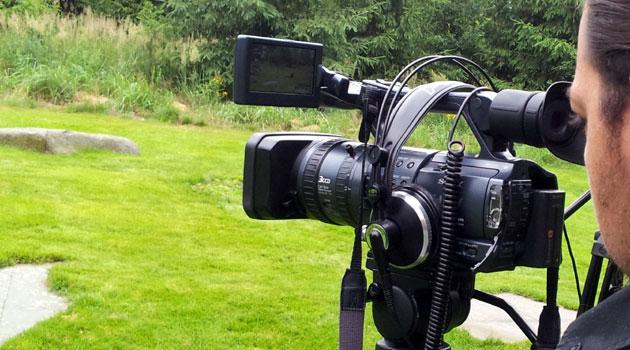Richard Samko, Patrik Banga, Jarmila Balážová, Iveta Demeterová, Tomáš Bystrý, Rena Horvátová: Their faces and voices are known to the Czech-speaking public from radio and television broadcasts. Each report they do refutes the prejudice that all Romani people "are the same".
These Romani men and women, thanks to their professions, are able to successfully challenge the negative opinions held about Romani people, and they do so on behalf of all the "invisible Roma" who work and take care of their families without ever attracting negative attention attention from either the media or their neighbors. Thanks to them, a generation of Romani children is now growing up who can identify with publicly-respected Romani professionals as role models.
These role models can give Romani children the courage to also become journalists and to actively contribute to how society is informed about events concerning their towns, their regions, and the society in which they live. "Media activities have been one of the main focuses of our work from the beginning, so logically we have always attempted to find and support Romani people who are interested in journalistic work," says Zdeněk Ryšavý, the director of ROMEA, o.p.s.
"More Romani people should be visible in the media – for example, in the position of reporters – but mainly they should also be contributing their particular angle on events and the contacts they have thanks to their origins in the Romani community," Ryšavý says. ROMEA is now offering media training for Romani journalists thanks to support from the American charitable foundation Bader Philanthropies.
Media training for future Romani journalists
"We’re looking for Romani people who are studying or who want to augment their professional skills and have serious interest in working as journalists in online media, print media, radio and television," says Lenka Jandáková, the media training coordinator. During the admissions process, ROMEA will primarily emphasize candidates’ motivations and prerequisites for such work.
"Part of the seminar will be individual courses in Czech grammar, so anybody who is not always sure about how things are spelled does not have to be concerned that he or she might be disqualified because of that," Jandáková says. From May to September Romani people interested in working in the Czech-language media will undergo intensive training to prepare them for an internship with a media outlet in the autumn.
The training will take place on weekends so students and those with current work obligations can participate. Czech and Romani professionals will transfer their know-how to those attending and will provide them with valuable practical advice, as well as familiarizing them with the media operations of several different editorial offices during field trips.
Practice makes perfect
"Certainly nobody interested should anticipate that after completing this training he or she will immediately turn up on the screen of their regional TV broadcast or be sitting behind the desk in the newsroom of one of the daily papers. Each beginning journalist must first learn how to render stories, how to conduct an interview, how to find good subjects to report on – then they will get the opportunity to show what they have already learned and that they also want to learn new things," the project coordinator warns.
"The course attendees will be writing, writing and rewriting from the very beginning, because there’s no other way to do this if they want to be able to prepare a report that will withstand scrutiny in the newspapers. We will arrange for them to get feedback and comment on their texts," says course lecturer Tomáš Bystrý when asked how, during a brief amount of time, an absolute beginner can be prepared for a journalistic career.
Bystrý began when he was a college prep student by writing for the magazine Romano voďi and news server Romea.cz. Today he is an editor and moderator for the Czech radio station Radiožurnál.
Looking for new talent
"We have an idea that is somewhat immodest, but we hope not absolutely unrealistic, and that is that we will discover ‘another’ Ríša Samko during this course – someone who trained as a cook but who, after completing a journalism course, began a successful career as a television moderator and reporter," Jandáková says. "If you know of anyone in your neighborhood or in your family who isn’t shy about speaking in public and who knows how to speak well, then let us know who they are."
